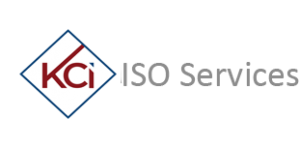What is ISO?
ISO stands for International Organization for Standardization. The word “ISO” means equality, meaning ISO is equally applicable to all member countries ir-respective of their economic developmental status. It is an independent, non-governmental international organization with a membership of 161 countries’ standards-bodies. Through technical-representatives from its member-countries, it brings together experts to share knowledge and develop voluntary, consensus-based, market relevant International Standards that support innovation and provide solutions to global challenges.
ISO’s Central Secretariat is based in Geneva, Switzerland and is supported by technical committees comprising of experts from different fields.
Why do you need a ISO?
ISO International Standards ensure that products and services are safe, reliable and of good quality. For business, they are strategic tools that reduce costs by minimizing waste and errors and increasing productivity. They also help companies to access new markets, level the playing field for developing countries and facilitate free and fair global trade. It’s aim is to strive exceeding the stakeholders’ expectations by implementing, maintaining and reviewing excellent systems & procedures. It gives confidence to the stakeholders that their interests would be honored and complied with. It is internationally recognized and accepted. ISO certified companies get business-preferences.
Some organizations decide to implement the ISO standard(s) solely for the benefits it provides. Others decide to get certified to it, to show external parties they have implemented a particular management system and also serve as a marketing-tool. It benefits all stakeholders of the business.
The Management is ensured of greater controls, cost reduction, optimum utilization of resources & loyal customers. They get audited report from experts about their business’s systems & procedures’ compliance’s. The customers are assured of good-quality , genuine products/services and continued after- sales support. The employees become more aware of their responsibilities and are assured of regular systematic appraisals. There is also a feeling of pride for working for a ISO certified company.
The suppliers will feel safe that the supplier-contract-terms will be honored. They will be aware of your requirements, performance guidelines etc.
The society is assured that ISO certified business is not a nuisance but useful and legal, thereby assuring better acceptance of products/services.
What are standards?
International Standards make things work. They give world-class specifications for products, services and systems, to ensure quality, safety and efficiency. They are instrumental in facilitating international trade.
ISO has published more than 21000 International Standards and related documents, covering almost every industry, from technology, to food safety, to agriculture and healthcare. ISO International Standards impact everyone, everywhere
What is a management system?
“A management system is a way of defining an organization’s operations to help it meet its objectives.” – iso.org
Bodies involved in ISO Certification
ISO Certification
It is not a necessity. An organization can use ISO standard to improve the way they work, without being certified.
However, when an independent certification body audits your processes and implemented systems against the requirements of ISO standard, it gives confidence to your customers, buyers, suppliers, investors, government or other interested stakeholders that ISO standard has been implemented properly.
For some organizations, certification is a must since some government bodies or main contractors work with only ISO certified organizations.

